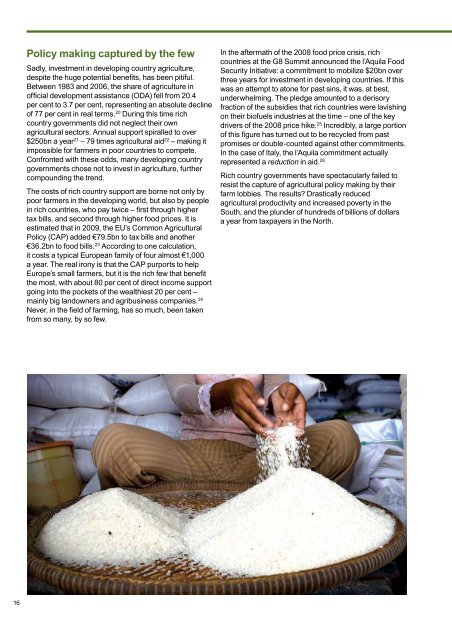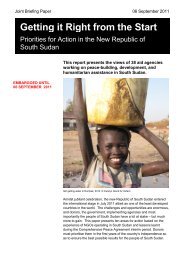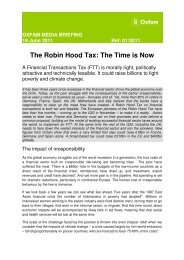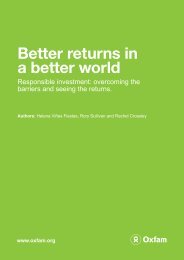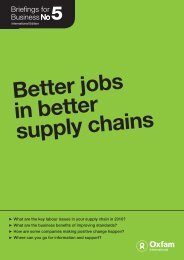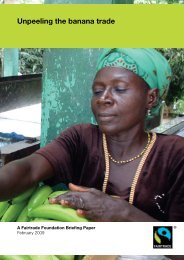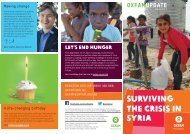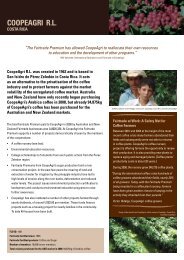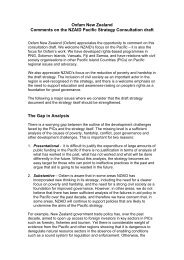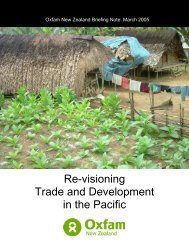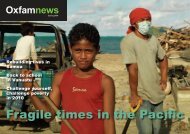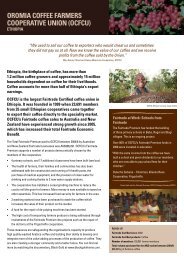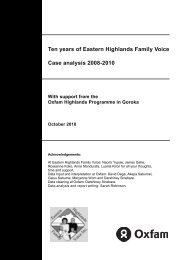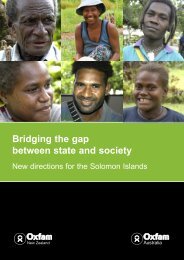Growing a Better Future - Oxfam International
Growing a Better Future - Oxfam International
Growing a Better Future - Oxfam International
- No tags were found...
Create successful ePaper yourself
Turn your PDF publications into a flip-book with our unique Google optimized e-Paper software.
Policy making captured by the fewSadly, investment in developing country agriculture,despite the huge potential benefits, has been pitiful.Between 1983 and 2006, the share of agriculture inofficial development assistance (ODA) fell from 20.4per cent to 3.7 per cent, representing an absolute declineof 77 per cent in real terms. 20 During this time richcountry governments did not neglect their ownagricultural sectors. Annual support spiralled to over$250bn a year 21 – 79 times agricultural aid 22 – making itimpossible for farmers in poor countries to compete.Confronted with these odds, many developing countrygovernments chose not to invest in agriculture, furthercompounding the trend.The costs of rich country support are borne not only bypoor farmers in the developing world, but also by peoplein rich countries, who pay twice – first through highertax bills, and second through higher food prices. It isestimated that in 2009, the EU’s Common AgriculturalPolicy (CAP) added €79.5bn to tax bills and another€36.2bn to food bills. 23 According to one calculation,it costs a typical European family of four almost €1,000a year. The real irony is that the CAP purports to helpEurope’s small farmers, but it is the rich few that benefitthe most, with about 80 per cent of direct income supportgoing into the pockets of the wealthiest 20 per cent –mainly big landowners and agribusiness companies. 24Never, in the field of farming, has so much, been takenfrom so many, by so few.In the aftermath of the 2008 food price crisis, richcountries at the G8 Summit announced the l’Aquila FoodSecurity Initiative: a commitment to mobilize $20bn overthree years for investment in developing countries. If thiswas an attempt to atone for past sins, it was, at best,underwhelming. The pledge amounted to a derisoryfraction of the subsidies that rich countries were lavishingon their biofuels industries at the time – one of the keydrivers of the 2008 price hike. 25 Incredibly, a large portionof this figure has turned out to be recycled from pastpromises or double-counted against other commitments.In the case of Italy, the l’Aquila commitment actuallyrepresented a reduction in aid. 26Rich country governments have spectacularly failed toresist the capture of agricultural policy making by theirfarm lobbies. The results? Drastically reducedagricultural productivity and increased poverty in theSouth, and the plunder of hundreds of billions of dollarsa year from taxpayers in the North.16


